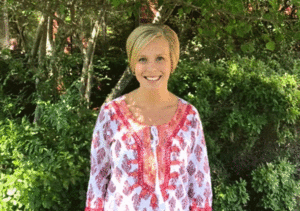“Um, hello, I’m calling because I think I have a problem with food but I’m not really sure….can you help me?”
“Good morning, my child is struggling with overeating and poor self-esteem…is this an eating disorder?”
“I took an online test and think I might have orthorexia….is that a real thing?”
These are just a few examples of the hundreds of calls, emails and inquires that we receive on a weekly basis here at Walden Behavioral Care. Despite the rising occurrence rates and the fact that eating disorders having the highest mortality rates of any mental illness, people still wonder if their struggles with food warrant care.
Eating disorders are mental illnesses.
In fact, they have been recognized by the DSM (Diagnostic and Statistical Manual of Mental Disorders) since the 1980’s. The current DSM, edition 5, now recognizes 8 categories of feeding and eating disorders. The tricky thing about eating disorders, is that they also are very medical in nature.
Many of the behaviors associated with each of the eating disorder diagnoses can have dangerous impacts on both physical and psychological well-being. As such, it is important that anyone living with an eating disorder receives care from a full team of multi-disciplinary professionals including a therapist, dietitian, medical doctor and/or a prescriber if necessary.
If you or someone you love are experiencing thoughts and/or behaviors that are impacting your mental and physical health, you deserve specialized eating disorder support. Eating disorders are complex mental health conditions that are both psychological AND medical in nature. As such, they often require interventions that focus on stabilizing both the body and the mind.
Here are a few things to look for if you are concerned that you or someone you love may be living with an eating disorder.
- Change in behavior around food.
Have you or someone you love stopped going to social gatherings where food is being served? Are you making excuses to eat alone or purposely isolating yourself during meal-times?
- Intrusive or repetitive thoughts about food intake, food planning and/or food consumption.
Is someone you love collecting recipes or watching food-related TV channels when there was no prior interest in cooking/baking before? Are they serving food to others but not having it themselves? Are they preparing multi-person meals for themselves, tracking their daily intake, experiencing negative emotions if they didn’t follow their food plan?
- Emotions associated with food consumption.
Do you feel guilty after eating or use food as a coping skill? Do you base the quality of your day based on how “good” or “bad” you ate?
- Use of eating disorder behaviors
- Restricting caloric intake
- Purging
- Laxative and diet pills
- Binge eating, overeating, emotional eating
- Using stimulants (over the counter or prescribed) to control appetite
- Water loading (drinking excessive water for fullness or to manipulate weight)
- Exercise with the goal to control weight or shape
- Physical changes
- Change to weight & shape
- Fatigue that is improved by appropriate sleep/rest
- Increased or decreased heart rate and blood pressure
- Lab abnormalities
Eating disorders are mental health illnesses that require specialized attention by a team of professionals. If you or a loved one may be struggling with an eating disorder, there is hope and help. Through a combination of treatment that focuses on mental health recovery and physical health stability, we can help you through your healing journey.
For more information on eating disorders and mental health, please check out these blogs:
- How to Help a Loved One with an Eating Disorder
- What is Bulimia Nervosa?
- 5 Common Eating Disorder Symptoms
####
 Joanna Imse, LICSW, CEDS is the Clinical Engagement Specialist at Walden Behavioral Care. In this role she is responsible for ensuring appropriate transitions and plays a critical role in creating a successful patient journey throughout the system of care. Prior to her current role, Joanna served as the Program Director of Walden’s Amherst, Worcester, and Milford MA clinics. Her career at Walden began in 2011 when she served as clinician for adolescent IOP in Waltham. Prior to her current role, Joanna spent time as a clinician in Waltham, Worcester, Braintree and Peabody sites. She received her masters of social work at Salem State University in 2007.
Joanna Imse, LICSW, CEDS is the Clinical Engagement Specialist at Walden Behavioral Care. In this role she is responsible for ensuring appropriate transitions and plays a critical role in creating a successful patient journey throughout the system of care. Prior to her current role, Joanna served as the Program Director of Walden’s Amherst, Worcester, and Milford MA clinics. Her career at Walden began in 2011 when she served as clinician for adolescent IOP in Waltham. Prior to her current role, Joanna spent time as a clinician in Waltham, Worcester, Braintree and Peabody sites. She received her masters of social work at Salem State University in 2007.







